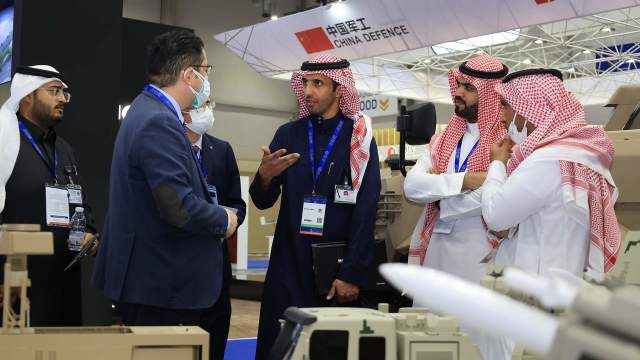Raytheon was afraid of Saudi Arabia's cooperation with China
One of the largest manufacturers of weapons, the American corporation RTX, also known by the former name Raytheon, withdrew from the agreement on the creation of an air defense system for Saudi Arabia. According to the American press, Riyadh has allocated $25 billion for detection systems and missile systems. However, RTX's concerns about the kingdom's possible cooperation with Russia and China turned out to be more significant. What will the rupture of the largest contract lead to, Izvestia tells.
The end of an era
Military cooperation between the United States and Saudi Arabia began with the signing of an agreement in 1975 for a record amount of $766 million for those times. This agreement, which was one of the elements of a larger, strategic agreement, became the basis of many years of partnership in the field of military-industrial complex between the countries. For decades, Riyadh has remained one of the largest importers of weapons and at the same time one of the main buyers of weapons from the United States.
In May 2017, the countries signed a comprehensive agreement totaling $109.7 billion. It implied eight contracts worth $12.5 billion and a memorandum consisting of 34 points — for another $95.2 billion. In particular, in May 2020, Riyadh signed a contract with Boeing for the supply of 650 SLAM-ER air-launched cruise missiles and 402 Harpoon anti-ship missiles (Block II modification). The transaction amount amounted to $1.971 billion with a due date by December 2028.
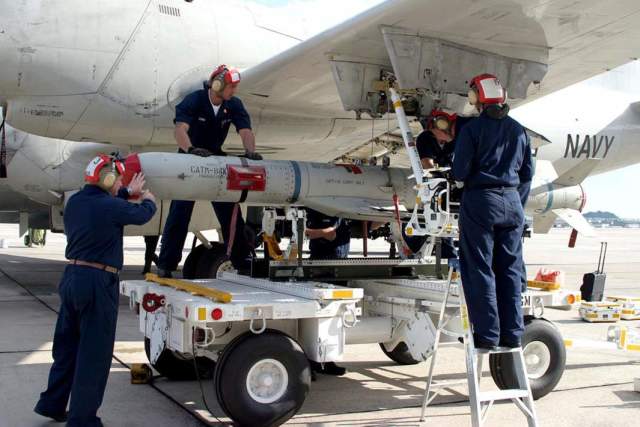
Technicians hang a SLAM-ER cruise missile under the wing of a fighter-bomber
Image Source: Photo: flickr.com
The exclusive level of relations that existed up to that time allowed the Saudis to count on the acquisition of the most modern samples from the extensive export nomenclature of the American military-industrial complex.
Localization of arms production involves technology transfer. In the case of American companies, this process is regulated by several regulations, the main of which is the law on arms export control. Its subsection, Rules of International Trade (IRA), defines a list of countries to which this export is prohibited.
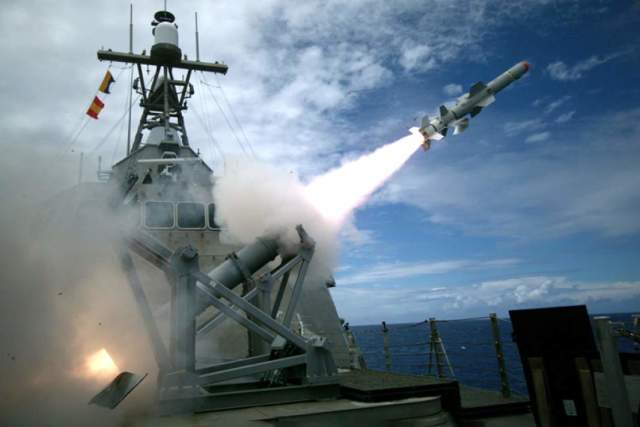
Launch of the Harpoon anti-ship missile from the US Navy destroyer
Image Source: Photo: US Navy
In 2018, Crown Prince Mohammed bin Salman set a very ambitious goal for his government — to increase the localization of weapons production in the kingdom from 2 to 50% by 2030. For these purposes, Riyadh also planned to attract American companies. In particular, due to the well-known problems with the Yemeni Houthis and their drone attacks on oil facilities, the kingdom turned to RTX for help in creating an effective air defense system. The project has already received the name "multipurpose battery".
Money in the sand
By the beginning of this year, an agreement between the American defense giant and the Scopa Defense company representing the interests of the kingdom was under development. It implied investments in the construction of a plant for the production of air defense systems in the amount of $ 25 billion, which is 25% of RTX's annual revenue and a subsequent profit of $ 17 billion from sales.
According to The Wall Street Journal, citing informed sources, the reason for the termination of the agreement was the fears of the RTX management regarding possible business ties of the owner of Scopa Defense, Mohamed Alajlan, with Chinese, Russian and Belarusian companies that are on the stop list of the American government. The implementation of the deal would, firstly, lead to a violation of the sanctions regime and, secondly, could lead to the leakage of military technology.
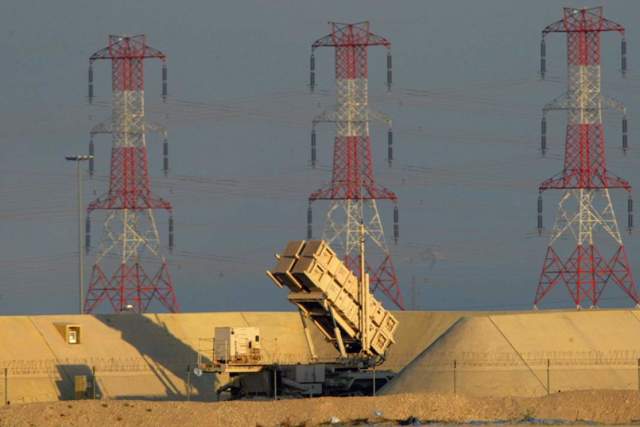
American-made Patriot anti-aircraft missile system of the Saudi Arabian Air Defense Forces
Image Source: Photo: Getty Images/Joe Raedle
According to the newspaper, after it became known about the breakdown of the deal, Scopa Defense fired its American CEO, who also expressed his concern to Alajlan about possible sanctions from the United States due to cooperation with companies from Russia and China.
Alajlan himself stated that he does not have any joint projects with Russian businessmen at all, and Scopa Defense acquires components exclusively necessary for the production of ammunition and military equipment — copper, rubber and other materials from Chinese companies. However, apparently, in modern conditions, this circumstance alone may be enough, primarily due to political changes in the relations between the two states.
It doesn't work that way
The trade in arms, especially high-tech ones, has always been evidence of broader strategic cooperation. At the same time, Washington has repeatedly used defense contracts as a tool to influence certain counterparties in international relations. Of the latter, the deal between the United States and Turkey for the supply of F—16 fighter jets has not yet taken place. The agreement was not signed due to the desire of the Americans to link its execution with Ankara's approval of the Swedish application to join NATO.
Breaking the deal can be considered a symptom of cooling relations, said Ilya Kramnik, a researcher at the Center for North American Studies of the IMEMO RAS.
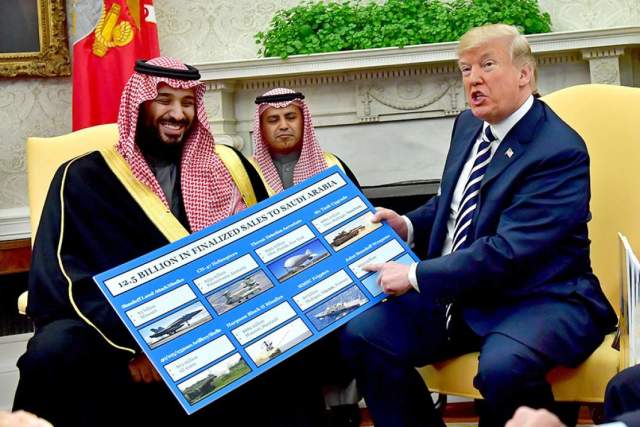
US President Donald Trump shows Saudi Crown Prince Mohammed bin Salman Al Saud a poster with samples of military equipment supplied by the US to the Saudi army, 2018
Image source: Photo: TASS/EPA/KEVIN DIETSCH
— The United States has previously restricted the supply of weapons to certain countries for political reasons. This was the case with Turkey and the UAE. In combination with the intensification of Saudi Arabia's cooperation with Russia and China, the termination of the contract in a certain sense may signal a loss of trust between Riyadh and Washington," the expert noted.
Arab countries occupy about a third of the global arms market. Saudi Arabia and the UAE, as well as Egypt cooperating with Russia, are the largest importers in this segment. The violation of the long-term and very profitable cooperation with Riyadh for American defense companies, especially due to the loss of mutual trust, seems to be a special case of the destruction of the cooperation strategy that has been established since the 70s of the last century.
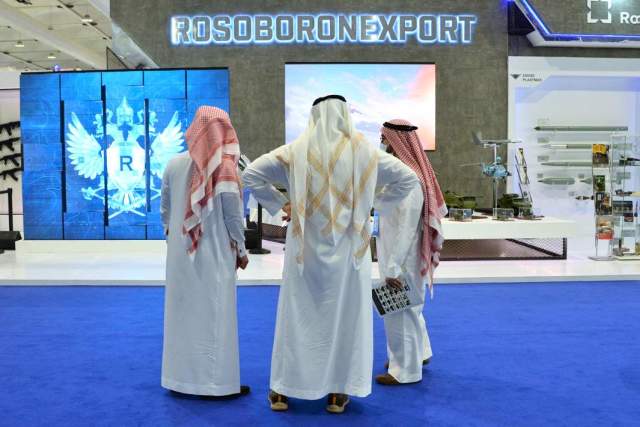
Visitors of the World Defense Show 2022 in Riyadh at the stand of Rosoboronexport JSC
Image source: Photo: RIA Novosti/Valery Melnikov
The decision announced at the OPEC+ summit in October last year to reduce oil production was regarded by many in the White House as a blow to the positions of the Democrats on the eve of the midterm congressional elections. After that, several representatives of the Democratic Party called for the withdrawal of the American military contingent and the Patriot and THAAD missile defense complexes from the kingdom.
All this is happening against the background of the reorientation of Saudi oil exports to Asian countries, the expansion of cooperation with China and finally joining the BRICS. Bilateral relations have deteriorated for a combination of reasons, emphasizes Vladimir Vasiliev, chief researcher at the Institute of the USA and Canada.
— Trump at one time really wanted to improve relations with Saudi Arabia. There was even talk of creating some kind of anti-Iranian "Middle Eastern NATO" with the kingdom at its head. But the Biden administration, especially after the "Khashoggi case" and talks on resuming the "nuclear deal" with Iran, went to an obvious aggravation. Riyadh's policy on the oil market has added negativity to the relations between the two countries. As a result, Saudi Arabia has rapidly begun to move closer to Russia and China. Now the White House is softening the rhetoric and trying to return to the Trump strategy in many ways," the expert concluded.
Andrey Kuzmak
